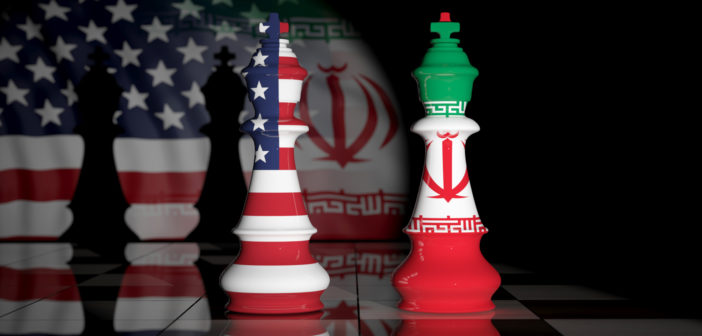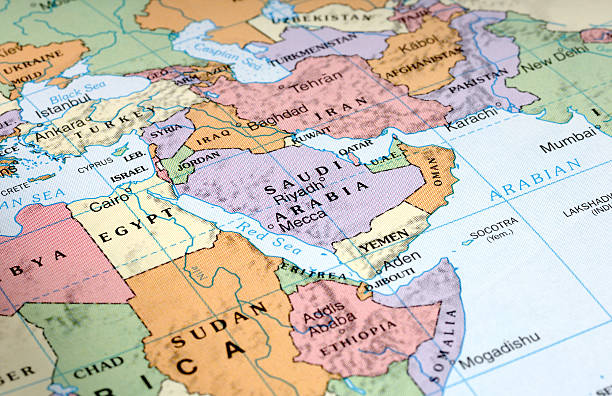
President Obama made his intention to engage Iran public in his landmark Cairo speech on June 4, 2009, well before the election of Hassan Rouhani. He said:
“…For many years, Iran has defined itself in part by opposition to my country, and there is indeed a tumultuous history between us. In the Middle of the Cold War, the United States played a role in the overthrow of a democratically elected Iranian government. This history is well known. Rather than remain trapped in the past, I have made it clear to Iran’s leaders and people that my country is prepared to move forward. The question, now, is not what Iran is against, but what future it wants to build…”
Rouhani’s election and his appointment of Javad Zarif as Foreign Minister prepared the ground for engagement on the nuclear issue.
The “democratically elected Iranian government” Mr. Obama referred to was headed by Prime Minister Mohammad Mosaddegh, with Doctor of Law degree from the University of Lausanne, overthrown in 1953 by a coup d’état orchestrated by the US and the UK. Mr. Mosaddegh was an advocate of secular democracy and resistance to foreign domination. His ouster left a lasting scar on Iran-US relations as did the US Embassy hostage crisis in 1979. President Obama’s remarks represented the first admission of American responsibility in Mr. Mosaddegh’s ouster, perhaps a belated apology to pave the way for a new period of positive engagement.
The assassination of General Qassem Soleimani, unfortunately, will leave another lasting scar on Iran-US relations. His being targeted in Baghdad will also complicate further Iraq-US relations.
Thomas Jefferson famously said, “When angry count to ten before you speak. If very angry, count to one hundred.”
President Trump has never minced his words regarding his hostility/anger towards Iran and the JCPOA. Whether he counted even to two or three before deciding that Iran’s chief military commander, well-liked and respected by his people, should be assassinated on foreign soil begs the question. General Soleimani may have engaged in region-wide activities detrimental to US interests but putting him in the same category with Osame bin Laden is disputable under international law. Moreover, denying Foreign Minister Zarif a visa to New York violates UN rules and is inexcusable. Was the intention to prevent him from capturing world’s attention from the UN rostrum? Why Washington couldn’t be more confident?
If Washington’s Western allies refrained from open criticism of the assassination and gave it “some support” it is because they do not wish to further deepen the transatlantic rift with an unpredictable US President and his team of yes men. Thus, they prompted Mr. Pompeo to say, “Frankly, the Europeans haven’t been as helpful as I wish that they could be. The Brits, the French, the Germans all need to understand that what we did, what the Americans did, saved lives in Europe as well.” This is probably why the Europeans were more critical of the Iranian missile assault on US bases in Iraq. They probably felt they had to make up. In reality, they must have been shocked by the assassination.
In my last post I said that that Iran was increasingly treating Iraq like its turf and the recent protests in Iraq had an anti-Iran dimension and as such were an expression of Iraqiness. Unfortunately, the killing of General Qassem Soleimani in Baghdad will only add to Iraq’s troubles and at least for a while silence those calling for an Iraq free of any foreign interference, including Tehran’s. The US, however, will now be the top priority as revealed in the Iraqi parliament’s call for US troops to leave Iraq. After all, the Iraqis must be asking themselves what if the US had not invaded their country in 2003. Would they have been better or worse off under Saddam Hussein’s dictatorship? Yes, Iran has increasingly treated Iraq as its turf but the US was no different. Could President Trump authorize the assassination of General Soleimani if he were visiting the capital of a traditional ally? No. But countries like Pakistan, Iraq, Afghanistan are considered war zones and respect for sovereignty is not an issue.
Iran probably counted to ten before its retaliatory attack on two US bases in Iraq because a swift first reaction was needed to calm the public opinion aroused further by the country’s leadership. That the attacks may not have killed any Americans should not come as a surprise to anyone, although Foreign Minister Zarif signaled that the attacks “concluded” Iran’s response to the killing of General Soleimani.
However, Iran will keep counting not only to hundred, but perhaps to a thousand in the coming weeks and month regarding further options of retaliation, direct or indirect. The question is whether or not there is any chance of dialogue between the two countries in view of the diametrically opposite positions on the nuclear issue and heightened feelings of enmity. Everybody is calling for restraint but the status quo hardly seems sustainable. Mr. Trump’s saying on Wednesday that the Iranian strike caused no American or Iraqi deaths adds insult to injury and Iranians will probably claim the opposite. A lot also depends on the 2020 US presidential election and how Mr. Trump’s personal agenda. In recent years we have got accustomed to seeing foreign policy reduced to a mere tool of domestic politic particularly in polarized countries. Thus, avoiding a deadly confrontation until the end of the year will be an achievement.
A final word: More than fifty Iranians lost their lives in a stampede during General Soleimani’s funeral ceremony. I feel sorry for them and sorry for the Middle East for its widespread lack of calm, composure and self-possession, even in times of mourning and unity.
Ali Tuygan, Ambassador (Ret’d) and former Undersecretary of the Turkish Foreign Ministry. The article is also published on his blog.









